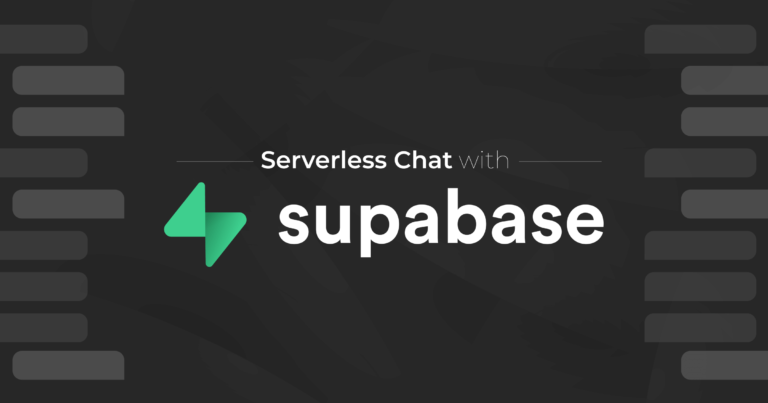
Modern times have seen an explosion in services providing a multitude of serverless possibilities, but what is serverless? Does this mean there are no servers? You’d think, but no.

Redux-Saga is an intuitive side effect manager for Redux.

Svelte has become increasingly popular over the last several years, even being voted the “most loved” web development framework in the 2021 Stack Overflow Developer Survey. Quite a few articles have been written about how much nicer Svelte is to work with than React.

We’ve talked before about some of the great features Deno brings to the table: first-class TypeScript support, a solid standard library, support for Web standards, and implicit security. All of this makes Deno great for writing scripts and servers, but it also works well for writing client-side applications.

Let’s face it. Reactive programming and the traditional web APIs are not friends.

Snapshot testing has become very popular for front end-development over the last few years. The term has almost become synonymous with Jest and React, but it can be used to test more than just components.

React Native is a JavaScript framework for writing hybrid native mobile applications for both iOS and Android platforms. React Native uses the same JSX and React development approach you would take for developing for the browser, but applications get built as native applications in Objective-C (for iOS) or Java (for Android) by the React Native tooling.

If you need to build a desktop application today, Electron is an increasingly common choice. It is cross-platform and is built using the same web technologies that you probably already know.

All Things Open is a large, community-created open source conference in Raleigh, North Carolina, with nearly 4,000 attendees and 20 concurrent sessions. At this year’s event, I was invited to deliver a talk similar to one I had presented at JSConf titled “React Already Did That.” The session itself is not actually about React, but about several key concepts in how the JavaScript ecosystem evolves.

At this month’s FullStack London 2018, our CEO, Dylan Schiemann, presented the talk “Choosing a Framework”, based on our Choosing a Framework blog series. Given our long history in web development, we’ve seen JavaScript evolve from an obscure simplistic scripting language to the language of the internet.

It has come time to read the liner notes and write some conclusions. When we started writing this blog series, we knew that JavaScript/web application frameworks were not easy to summarize.

For a web framework to be effective, it should offer you more than just functionality. It doesn’t matter how much hard work you put into your application if it breaks when people use it.

Recently I was fortunate to be able to attend the Google Polymer Summit in Copenhagen with a SitePen colleague. Having attended the PWA Summit last year in Amsterdam we were expecting a well organised and interesting conference, and we were not to be disappointed.

Test early, test often, and test some more. Why put our heart and soul into our web applications only to be let down because we are not completely testing them.

Let’s figure out how to play our album. Is it a 45 vinyl or some sort of fancy SACD? Gaining insight into how we might develop and deploy an application built on a web framework helps us figure out if it is the right fit for our team.

As new user interface component frameworks are created and old frameworks are replaced with emerging technologies, methods for styling those components must change with them. Long gone are the days of creating a simple HTML component and importing a simple CSS file with corresponding class names.

Traditionally, engineers use mixins, decorators, inheritance, and plain code duplication to add common functionality to a handful of components. Mixins and decorators can modify the target object in such a way that you are never really sure what methods are safe to override without unwanted side effects.

Previously on Web Frameworks, we looked at how various frameworks deal with the concept of applications. Akin to listening to the whole album, we got a sense of how the frameworks pull it all together.

There are many reasons to like React. It provides a nice library for writing reusable components and leverages its own virtual DOM, abstracting away the obtuse native DOM APIs in favor of a simple method calls, which are further abstracted away with a JavaScript language extension, JSX.

Applications built with web technologies, something that was a curiosity a few short years ago, have emerged onto the scene as a must have for most organizations. Transcending websites and providing users with a more open and unbounded experience, web applications are everywhere.

We have previously discussed the look and feel of web frameworks. While we often become interested in a framework based on the stylishness of the widgets and applications it can create, this may lead to a similar approach to how we have historically selected music.

Whether it is Top 40 or classical or R&B, artists and music have a recognizable look and feel. When looking at frameworks, some simply provide us with a bag of instruments, while others provide us with chord progressions and album covers we can customize.

…we would all be using justin-bieber.js. We as an organization have been working with JavaScript since 2000.

Adam Klien, software engineer at Google, announced on ESDiscuss that they were withdrawing the proposal to implement Object.observe and plan to remove it from V8 by the end of the year. While I was never sold on the approach of this API, I assumed long ago it was the API that would be used for data binding to plain old JavaScript objects.
Receive Our Latest Insights!
Sign up to receive our latest articles on JavaScript, TypeScript, and all things software development!